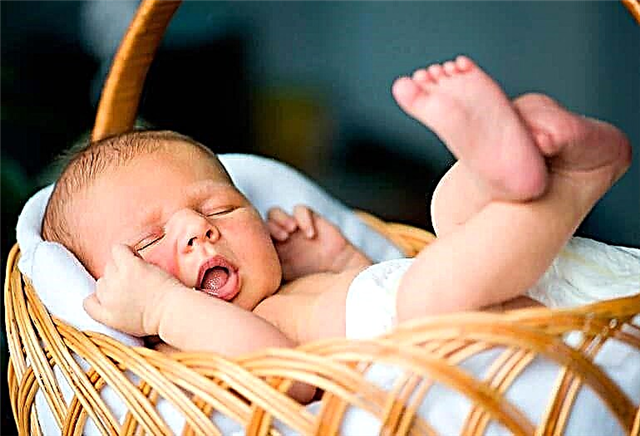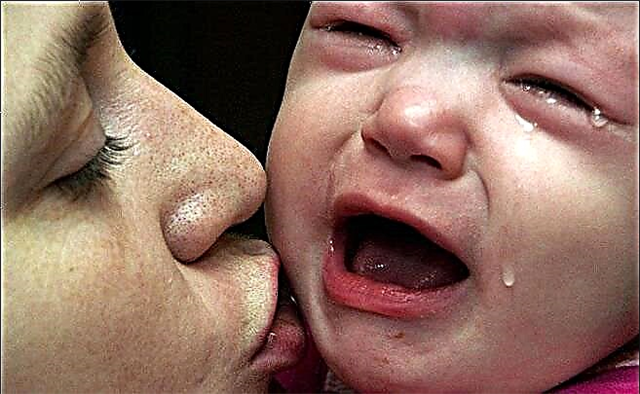Vaccinations are nothing more than immunity training. The weakened germs contained in the vaccine stimulate the child's body to fight. It produces immune antibodies that suppress fake attacks by viruses or bacteria. The most common question for mothers during a visit to a pediatrician, if the baby was vaccinated (immunized), is whether it is now possible to bathe him.

The child is vaccinated
Are pediatricians allowed to bathe the child
Most pediatricians agree that there is no vaccine that is incompatible with soap and water. When an infant receives one of the mandatory vaccines on the immunization schedule, he can continue to live a normal life, including taking baths.
Important! Pediatricians usually recommend that parents monitor their child for several hours after vaccination.

Baby is swimming
Why bathing after vaccination is dangerous
Newborns are vaccinated from the first months of life. Vaccination entails the body's work to produce antibodies. Possible signs of this activity:
- pain, swelling, redness at the injection site;
- fast fatigue and malaise;
- temperature;
- body aches;
- small rash.
In such conditions, additional stress on the body is not recommended. This applies to intense physical activity, long trips. That is why it is impossible to bathe a child after vaccination - this procedure can aggravate negative manifestations. During it, hypothermia of the child is possible, therefore, complications of the baby's condition are likely. Another reason to be careful about bathing is the presence of microbes in tap water, which are harmless to a healthy baby, but can affect a weakened body.
Important! The viruses and bacteria in the vaccine cannot cause illness, but they can temporarily weaken the child's body.
Some pediatricians advise especially anxious parents to redeem the baby on the eve of vaccination in order to exclude possible complications, and after it do not perform water procedures for a day or two.
When bathing is contraindicated
If the child is okay after the vaccination and there has been no change in his condition, then you can adhere to a daily routine, including a warm bath (the water should not be too hot or cool) or a calm walk. It is also allowed to cool the injection site slightly by applying a gauze or cotton swab moistened with cool water.
You should not bathe your baby if you have the following symptoms:
- high temperature;
- cough and redness of the throat;
- the appearance of edema of the nasal mucosa;
- inflammation at the injection site;
- poor general condition: drowsiness, apathy, lethargy, lack of appetite.
Bathing rules for various vaccinations
Doctors consider it possible to bathe a newborn after being vaccinated against the following diseases:
- polio;
- tetanus;
- Hepatitis B;
- measles;
- rubella;
- infection caused by pneumococci;
- mumps;
- yellow fever;
- rabies;
- diphtheria.
However, each type of vaccination has its own characteristics and likely adverse reactions.
BCG
According to pediatricians, the widespread belief that babies should not be bathed after immunization is associated with the tuberculosis vaccine (BCG). The peculiarities of this procedure are such that about two weeks after the injection of the vaccine, a bubble oozing with fluid forms on the baby's handle, which then turns into a scar.

Reaction to BCG
Until the vaccination site has healed, parents should take care not to get it wet. This does not mean that swimming is prohibited, you just need to be careful not to rub or soap your baby's handle.
You should not bathe the child only if the vaccination site is inflamed, festering, or the baby has other symptoms of malaise.
DTP
This is a comprehensive vaccine designed to develop immunity against whooping cough, tetanus and diphtheria. Basic rules for DTP vaccination:
- Before the procedure, blood and urine tests are taken from the baby, and a general examination is performed. If there are health problems, vaccination is postponed until a later date;
- Since the likelihood of allergic reactions is high, you should not introduce unfamiliar foods into the baby's diet at this time;
- Whether it will be possible to bathe the child after the DPT vaccination is determined by his condition. Many children experience fever after receiving the DPT vaccine. In this case, bathing is contraindicated.
Doctors determine how many days must elapse before the first bath. These periods are calculated in two or three days if the baby is in good condition. Wherein:
- in time, water procedures should not be long;
- it is advisable to add disinfectants to the bathing water;
- the temperature in the room should be 22-24 degrees, and the water temperature should not be lower than 36 and not higher than 39 degrees;
- after bathing, you should immediately dry the baby and wrap him in a warm diaper or put on warm clothes.
Important! A bump may develop at the injection site after vaccination, and the skin around it will turn red. To avoid a negative reaction, after vaccination, you need to put gauze soaked in a solution of baking soda on this place (1 teaspoon of baking soda for half a glass of warm water).

DTP injection site
Flu
This vaccination is seasonal and is done at the request of the parents. Influenza vaccine is usually given in children with nasal drops. Sometimes injections are done in the arm. After the injection, it is better not to bathe the baby on the first day or do it with caution, without rubbing the injection site and limiting the time the baby is in the water. In the case of the introduction of the vaccine through the nose, you only need to monitor the condition of the baby and, in the absence of negative reactions, try to avoid hypothermia during water procedures.
There are many parental fears about vaccinating babies, but the vast majority of children tolerate the procedure without complications or severe reactions. If you closely monitor the child's condition after immunization and follow the recommendations of doctors, water procedures will not harm him.



